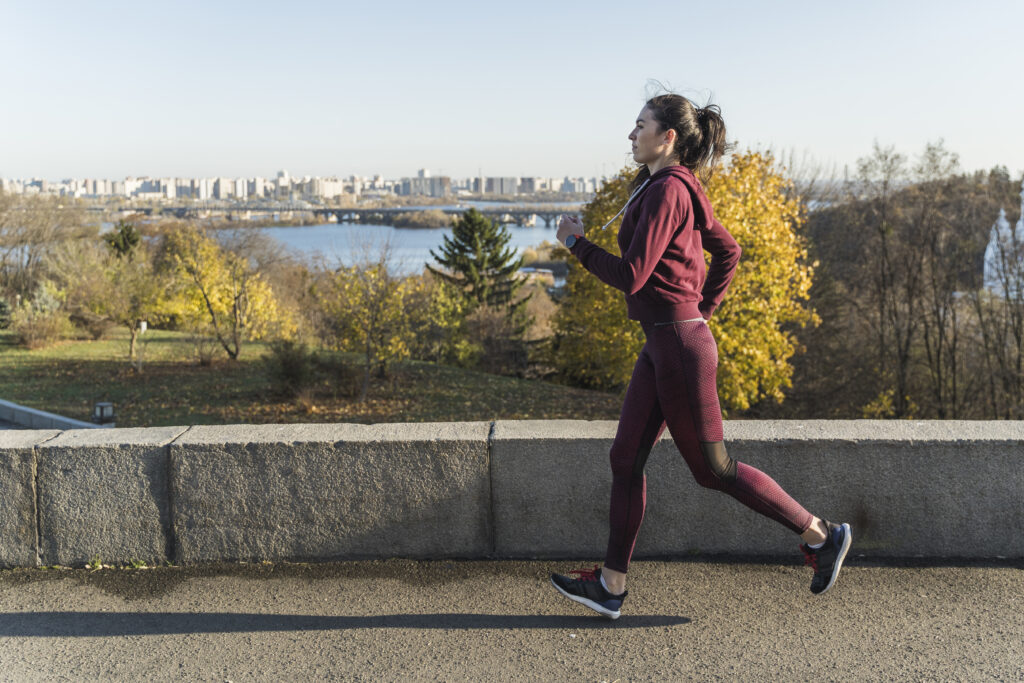Why 7000 Steps May Be the New 10,000 – A Physiotherapist’s Perspective

For decades, the number 10,000 steps a day has been considered the “gold standard” for fitness. But recent research now shows that just 7000 steps a day can deliver equally powerful health benefits. Walking 7000 steps daily is linked to lower mortality rates, better cardiovascular health, stronger joints, and improved quality of life.
As physiotherapists, we see walking not just as exercise but as a rehabilitation tool and a long-term lifestyle habit. Let’s dive deeper into why 7000 steps may be the new 10,000, how it can fit into your routine, and why physiotherapy guidance makes this habit safe and effective.
Why 7000 Steps a Day Matters
Walking is one of the most accessible, low-impact exercises. For most people, covering 7000 steps equals 5–6 kilometers per day, which can be achieved through regular routines like commuting, errands, or a structured walking program.
Health Benefits of 7000 Steps Daily
- Cardiovascular health: Reduces risk of heart disease and improves circulation.
- Longevity: Studies show walking 7000 steps daily lowers premature death risk more than those who are sedentary.
- Weight management: Burns calories and supports a healthy metabolism.
- Joint health: Keeps knees, hips, and ankles flexible while strengthening muscles that support them.
- Mental well-being: Walking outdoors lowers stress, improves mood, and boosts energy levels.
In other words, you don’t need to chase 10,000 steps if your lifestyle doesn’t allow it—7000 steps is a realistic, science-backed target.
A Physiotherapist’s Role in Step-Based Fitness
Many people ask, “Is walking 7000 steps safe for joints?” or “How many steps should a senior walk daily in India?” The truth is: the right number of steps varies depending on age, fitness level, and medical history.
That’s where physiotherapy comes in.
1. Personalized Step Goals
Physiotherapists assess your fitness, gait, posture, and any medical conditions. Based on that, they create a safe walking plan—whether you’re a young professional, a senior, or recovering from surgery.
2. Rehabilitation Integration
For patients recovering from sports injury rehabilitation, back pain physiotherapy, or post-surgery rehabilitation, we often start with 3000–4000 steps, then progress gradually to 7000. This ensures muscle strength and joint stability improve without strain.
3. Walking for Seniors
For seniors, walking 7000 steps a day can improve balance and reduce fall risk. Physiotherapists also include mobility physiotherapy steps and strengthening exercises to support safe walking.
4. Sports & Injury Prevention
Athletes in football clubs, cricket academies, and gyms in Bangalore benefit from physiotherapy-led walking programs that integrate with strength training. Walking helps improve recovery between sessions and prevents overuse injuries.
7000 Steps vs. 10,000 Steps: What Science Says
The idea of 10,000 steps originally came from a marketing campaign in Japan in the 1960s, not medical science. Newer studies now highlight that 7000 steps daily delivers most of the health benefits, especially for adults over 40.
- Walking below 5000 steps may be insufficient for long-term health.
- Walking 7000–8000 steps balances health benefits with sustainability.
- Walking more than 10,000 steps may not add much benefit for most people, unless specific weight loss or athletic goals are involved.
For the average Indian adult managing work, family, and city traffic, 7000 steps daily is achievable and effective.
Best Places to Walk in Bangalore
If you’re wondering “Where can I complete my 7000 steps in Bangalore?”, here are some local walking routes and clubs:
- Cubbon Park – Ideal for morning and evening walks.
- Lalbagh Botanical Garden – Scenic pathways that keep you motivated.
- Kaikondrahalli Lake & Agara Lake – Peaceful tracks for brisk walks.
- Neighborhood walking clubs – Many residential communities in Bangalore organize group walks for motivation and safety.
Searching “walking clubs Bangalore” or “walking patches near me Bengaluru” can help you find local groups to join.
Tips to Reach 7000 Steps a Day
- Break it up: Aim for 2000–2500 steps in the morning, during work breaks, and after dinner.
- Use stairs: Replace lifts with stair climbs.
- Walking meetings: Try short walking meetings at work.
- Family walks: Make walking part of your family routine.
- Track your steps: Use a smartwatch, mobile app, or fitness tracker to stay motivated.
Remember, walking 7000 steps is not a race—it’s about consistency.
FAQs Around 7000 Steps and Physiotherapy
Q: Is walking 7000 steps safe for joints if I have arthritis?
Yes, but it should be done with a physiotherapist’s supervision. We adjust pace and intensity, and combine walking with strengthening exercises.
Q: How many steps should a senior walk daily in India?
For seniors, 5000–7000 steps is a safe range. Physiotherapists personalize step goals based on health conditions.
Q: Can 7000 steps a day help back pain?
Yes, when combined with back pain physiotherapy exercises, walking helps improve spinal mobility and core stability.
Q: Can I use walking for sports rehabilitation?
Absolutely. For athletes in football, cricket, or running, walking acts as a low-impact recovery activity guided by sports physiotherapists.
Final Takeaway
Walking 7000 steps a day is more than just a number—it’s a lifelong investment in health. It offers cardiovascular, musculoskeletal, and mental benefits, while being achievable even in busy cities like Bangalore.
With physiotherapy support, you can make 7000 steps part of your rehabilitation, recovery, and preventive healthcare. Whether you are aiming for sports injury rehabilitation, post-surgery recovery, or simply better mobility as you age, physiotherapists ensure you walk safely and effectively.✨ Move better, live longer—start with 7000 steps today!
